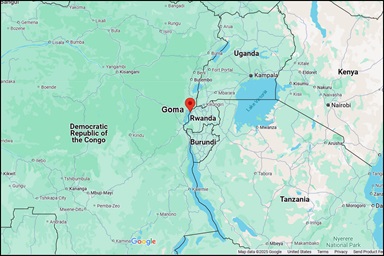Building upon a growing momentum for peace in Korea, representatives of various Methodist denominations and ecumenical organizations will participate in a high-level event in November.
The 2018 Roundtable for Peace on the Korean Peninsula, hosted by the United Methodist Board of Global Ministries, will begin Friday, Nov. 9, with a morning session at The Carter Center and feature an address by former U.S. President Jimmy Carter on the “Renewed Promise of Peace on the Korean Peninsula.”
Registration for that session, and for a 5 p.m. worship service on Nov. 10 at Grace United Methodist Church, is open to the public.
“We’re excited that President Carter, who has a long history of engagement with North Korea, is opening the event,” said Thomas Kemper, top executive for Global Ministries and moderator for the morning session.
In 1994, during the Clinton Administration, Carter negotiated terms for the first dialogue in 40 years between the United States and North Korea. The resulting agreement averted a possible war over North Korea’s threat to go nuclear.
Public Events
Ambassador James Laney — a United Methodist minister, former missionary in Korea and former president of Emory University — will reflect on Carter’s remarks. Laney was the U.S. ambassador in Seoul when Carter visited North Korea and ensured constant communication with the Clinton administration in Washington.
Also offering a response will be Christine Ahn, founder of Women Cross DMZ; Lee Hong Jung, top executive of the National Council of Churches in Korea; Jongdae Kim, co-founder and executive director of the Re’Generation Movement and Peter Prove, director of international affairs for the World Council of Churches.
Moon Jae-in, president of South Korea, is expected to send a video greeting to the Atlanta gathering. He signed an agreement with Chairman Kim Jong Un, leader of North Korea, after the two met in September for the third time.
When the event ends Nov. 11, participants expect to have an “Atlanta statement” describing next steps for the church and its work for peace in the region.
That work has continued for decades. Kemper attributed the election of J.C. Park, Korean Methodist Church, as president of the World Methodist Conference in 2016 as providing “a new impetus” for the work toward peace that has been carried out by churches for decades.
Glenn Kellum, special assistant to Kemper’s office, pointed out that Park wanted the roundtable to be theologically and politically relevant and have some influence. The hope is that the Atlanta statement can become “a tool in influencing change,” he added.
During the World Council of Churches Central Committee meeting in Geneva last June, Pope Francis shook hands with Christians from North and South Korea. A group linked arms and sang the 600-year-old folk song that is the unofficial anthem of Korea during the WCC’s 70th anniversary celebration.
The Korean delegations highlighted an important agenda item at the WCC meeting — justice and peace on the Korean peninsula. A new statement on Korea adopted by the central committee cited as hopeful indicators of peace the Panmunjom Declaration — signed in April by Moon Jae-In and Kim Jong Un — and the June summit between Kim and U.S. President Donald J. Trump.
The meeting that followed of the WCC’s Ecumenical Forum for Peace, Reunification, and Development Cooperation on the Korean Peninsula resulted in a call for the pursuit of peace.
Kemper, who attended the ecumenical forum, said the forum had “high hopes” that its “integral” partner in North Korea — the Korea Christian Federation — would be able to send a delegation to Atlanta.
In the end, event organizers were not able to get the necessary permits from the U.S. State Department. “I am disappointed because I strongly believe in people-to-people relationships,” Kemper said.
While he lamented the missed opportunity, Kemper remains optimistic that this Roundtable for Peace on the Korean Peninsula can make an impact.
After the opening session, the event will move to the headquarters of Global Ministries, where Park will address the central questions before the roundtable. Discussion will focus on the progress of the ecumenical community and a historical review of the factors influencing modern Korean history and U.S.-East Asian relations.
On Nov. 10, the morning session will center on biblical and theological issues related to peace and reconciliation, building to a discussion of practical actions in the afternoon. The public worship service and reception will follow at 5 p.m. The following morning, a concluding discussion and worship will take place at the Bank of America plaza in midtown Atlanta.
Bloom is the assistant news editor for United Methodist News Service and is based in New York.
Follow her at https://twitter.com/umcscribe or contact her at 615-742-5470 or [email protected]. To read more United Methodist news, subscribe to the free Daily or Weekly Digests.
Like what you're reading? Support the ministry of UM News! Your support ensures the latest denominational news, dynamic stories and informative articles will continue to connect our global community. Make a tax-deductible donation at ResourceUMC.org/GiveUMCom.




